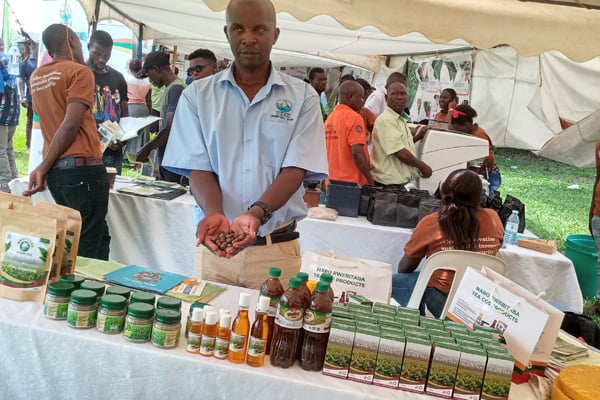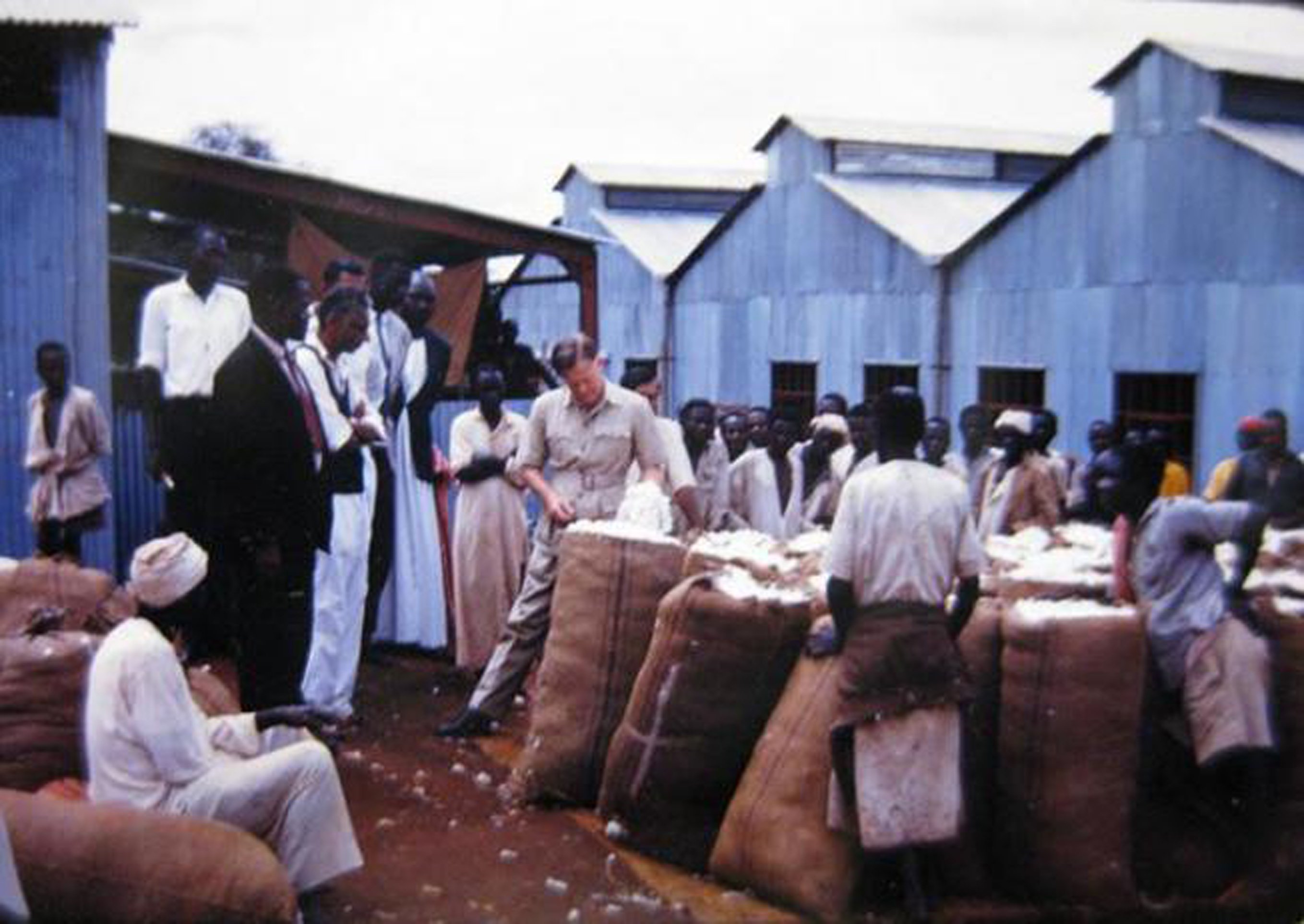Naro extracts oil from coffee, tea

A Naro researcher displays some of the products from coffee, tea and shea nut. Photo/Lominda Afedraru
What you need to know:
- Value addition on agricultural products is done through processes such as drying, pasteurisation, fermentation, cooking, cleaning roasting and pickling.
- The extraction is done by boiling clean ripe coffee bean to obtain substance from it. The boiling occurs under 40 degrees Celsius. It is then left to cool as one keeps mixing it. Thereafter ingredients such as aloe vera, coffee oil, shea butter, silicon oil, olive oil and petroleum are mixed to obtain super cream.
Scientists at the National Coffee Research Institute (NaCORI) have taken their research initiative to greater strides by inventing agricultural products out of coffee and tea extracts. Under Naro Holdings, the researchers have managed to add value to a range of crops to develop products such as blended tea, coffee and oils among others.
Coffee
The story about coffee in Uganda can be traced as far back as the 19th century. Stories are told of how coffee was used as an energy booster by long distance travellers, as a substitute for cigarettes and in cultural ceremonies especially in central Uganda.
Tea growing
Tea was first cultivated in Uganda in the early years of the 20th century in the botanical gardens in Entebbe. The crop was a success and commercial cultivation of tea started in the 1920s.
Traditional tea-growing districts are Mukono, Buikwe, Mubende, Mityana, Masaka, Kyenjojo, Kibale, Hoima, Kabarole, Bushenyi, Buhweju, Kanungu, and Kabale.
Coffee products
Cosmestics
Research technician at NaCORRI Joan Nakidde explaining the process of producing the various products including face and body scrub notes that usually after the coffee bean is harvested, it is dried and hurled in order to remove the husks.
Later winnowing is done to remove the dirt, sorted, graded using trays which have different sizes.
Each grade is roasted differently to avoid others getting burnt in case the sizes differ.
What the scientists select is usually the medium size which is ground into powder which is them mixed in hot water.
Other ingredients such as emulsifier food chemical and alcohol vetocetyle are incorporated into the coffee extract.
After the mix it is packaged in 250grammes and stored in a cool room temperature and each is sold at Shs20,000. Nakidde says this product has a shelf life of two years.
Naro body cream
This according to Nakidde is processed from extracts of fresh coffee bean which must be mature and ripe.
The extraction is done by boiling clean ripe coffee bean to obtain substance from it. The boiling occurs under 40 degrees Celsius.
It is then left to cool as one keeps mixing it. Thereafter ingredients such as aloe vera, coffee oil, shea butter, silicon oil, olive oil and petroleum are mixed to obtain super cream.
The packaging is done in 120grammes and each is sold at Shs15,000. The scientists contend that since natural ingredients are used to mix the cream, it has healing effects on the skin because it removes dead cells in the skin.
It can be used by both children as well as adults.
Naro coffee shaver
In processing the shaver, the scientists extract caffeine and chlorogenic acid from grinded coffee powder, then ethanol is added to the extract including essentials oils.
It is packaged in liquid form in 100ml container each costing Shs7,000. It can be used by saloon operators as after shave or by individuals after shaving their hair and beards.
All these items are available at NaCORRI institute in Kituuza Mukono awaiting private sector engagement to produce them in bulk for the open market.
Tea oil
There is similar research work going on with scientists conducting tea research who are extracting tea oil.
Veleriano Turiahebwe a research technician at Rwebitaba Zonal Agricultural Development Research Institute, in Kyenjojo District explained the process as below.
He explained that there are various tea clones some of which are good for processing green tea, normal fermented tea and others are good for seed production.
The clone which is good for black tea are 303 and 577 which he says are high yielding.
The clones that are good for processing green tea are 108, 82 and 618 with the latter being good for seed production. It is these tea varieties which the scientists are promoting for farmer uptake for commercialisation due to their different favourable attributes.
Oil extraction
Turiahebwe contends that the process of extracting tea oil starts with collecting tea seeds after it has grown for three years in the field.
Currently they are encouraging farmers to grow tea for both leaf processing and seed production.
What happens is that once the seed is plucked from tea trees, it is left to dry under sunshine, then shelling is done.
There after the seed is roasted and extraction of oil is done after grinding the roasted seed.
This is done using oil extraction machine and the oil is used for cooking food as well as for body lotion.
The process is still under research which started one year ago. The next step is to take the oil to the laboratory for analysis to establish how much iron and calcium it contains for health purposes.
The team is also apparently establishing the cost of production as per required quantity and how much seed is required to produce I litre of oil in order to determine the price.




